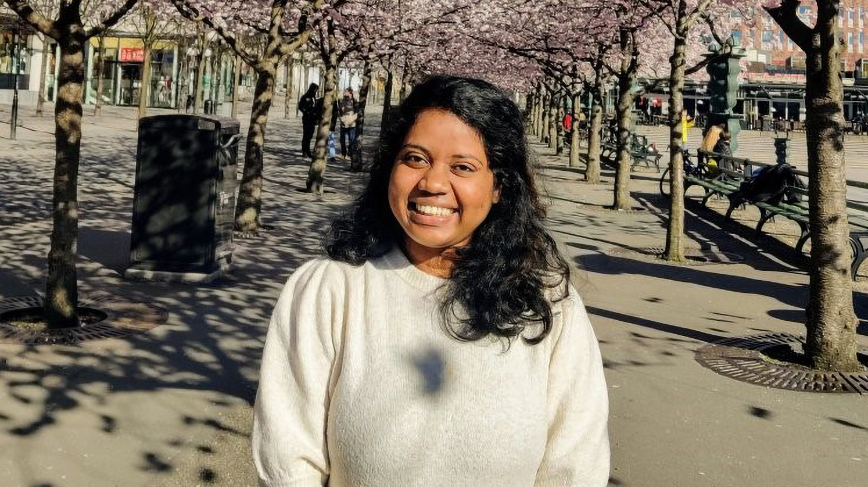Degree project takes student to front lines of COVID-19 battle

The fight against the COVID-19 pandemic became an unexpected opportunity for master's student Aashlesha Chekkala.
The coronavirus pandemic has left many people feeling helpless. But for the research community, the crisis has also sparked creative problem-solving and cross-disciplinary collaboration. In her degree project at KTH, Aashlesha Chekkala, a master’s student in Chemical Engineering for Energy and Environment, got a chance to help make a difference. In June she joined a research team working on an early-warning system that monitored the spread of SARS-CoV-2 in real time, without relying on results from individual testing.
We caught up with Chekkala to ask about this exciting degree project.
Tell us about the overall project.
The project was monitoring sewage water for circulation of SARS-CoV-2 virus in the local population and the rate of infection. We collect the wastewater samples, concentrate them using centrifugation and trace the RNA, which are assayed through the qRT-PCR technique, to estimate the prevalence of SARS-CoV-2. This method serves as an early waning tool.
What was your role in it?
Once we receive the wastewater samples, it is necessary to concentrate them so that we can analyze the SARS-CoV-2 in the wastewater samples. I was responsible for the concentration by centrifugation of the samples.
What was the most challenging part of that work?
In the part I worked, on which the sample preparation part, initially understanding the protocols for the analysis was challenging. It took me a week or 2 to accustom myself with the protocols.
What did you learn from it?
Apart from gaining academic knowledge from the project, the most important thing I learnt was how to work in a research lab. This is my first research project and it taught me a lot of research skills.
How did it feel to be part of this?
I feel really privileged to be a part of this project. As I said before, this is my first research project. Not only this, I feel really fortunate to be a part of a project which is so relevant today.
Is this the kind of work you hope to continue with as a career?
Yes. I was very interested in the concept of resource recovery from wastes. Now after being a part of this project, I am keen on pursuing a career in research related to wastewater treatment and its related fields. I am also going to be doing my master’s thesis on a topic related to this project.
Were you surprised that your interest would take you in the direction of fighting a global pandemic?
Yes! It is not that I was surprised, but I feel privileged that I get to tell my friends and family that the project I work on is in the direction of fighting a global pandemic. When I started my master’s, I knew I wanted to work with research related to resource recovery from wastes with more of chemical engineering influence. But now after working on the project, my interests are more towards the biochemical part and study of the viruses present in the wastewater samples.
Any advice for a student who is interested in enrolling in your master’s program?
The master’s program Chemical Engineering for Energy and Environment is a very vast course with so many areas a student can specialize or study further in. If a student is interested in a particular area and wants to explore the field further with research projects, it is often possible by contacting the professors in the respective fields as they are very approachable.
David Callahan
Related articles
Sewage analysis shows sharp increase in COVID 19 virus in Stockholm
Detection of COVID-19 in Stockholm sewage is first step toward early-warning system


